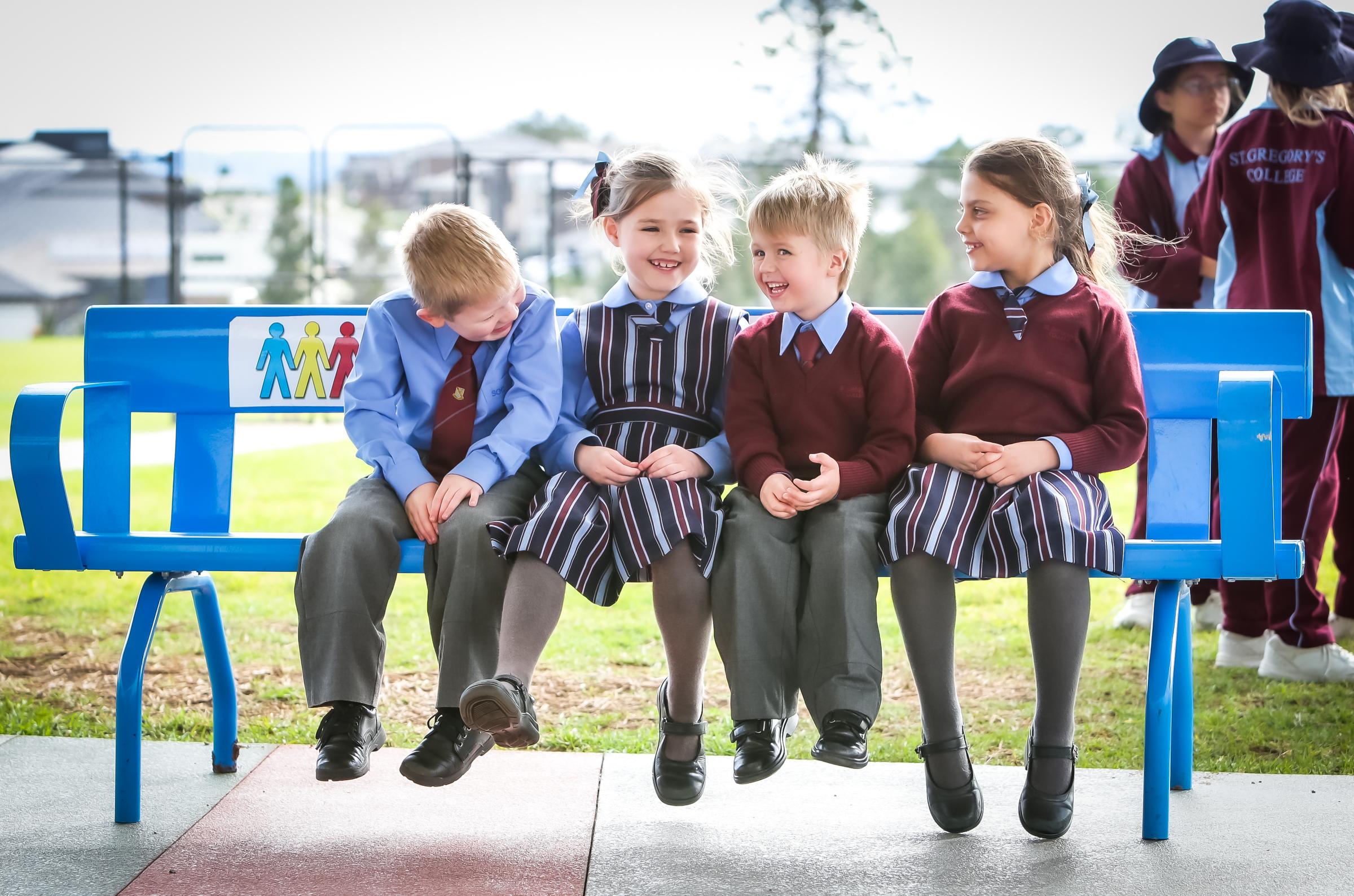From the Head of Junior School

Dear Members of the St Gregory’s College Community,
Thanks for tuning in to another edition of the St Gregory’s College Newsletter. It was wonderful to have so many parents join us for the latest K-6 Parent Forum and in today’s Microsoft Teams Assembly. Today, I have written to you all about two vital parts of what makes a child feel successful and in turn, develop and become the best person they can be – their parents and positive values.
Parents are Vital to the Success of Their Child
Parents are vital to the success of their child’s educational experience. As a parent at a Primary Years Program (PYP) school, we consider everyone at St Gregory’s College (staff, teachers, parents, students) to be part of our community of learners, continuously growing and working together to become more internationally minded. The more familiar parents are with the purpose and structure of the PYP, the better they will be able to support learning at home. In this newsletter article, I have outlined below a few strategies that parents can utilize to support their child’s International Baccalaureate (IB) education not only here at St Gregory’s College Junior School but beyond also.
- Use the vocabulary of the Learner Profile attributes and attitudes to reinforce behaviours at home. You can also use these words as you discuss characters in the books your child brings home from school or stories you read together at night. (This can be found in the students’ diary).
- Encourage your child to ask questions about life and the world around them and to actively search for answers. PYP (Primary Years Programme) students are prepared to be life-long learners who are not afraid to ask questions. Most problems have been solved because someone open-minded was not afraid to ask, “why?” or “what if?” As a parent, you can be a great role model by asking questions you have aloud.
- Have conversations with your child. Questions such as, “what is something interesting you did today?”, can open up dinner table conversations, allowing students the time to reflect on what occurred both inside and outside of the classroom. You can support your child’s reflections by helping them make connections, validating their experiences, and even adding new learning.
- Help your child develop their ability to reflect. Reflection is a key element to the learning process and is part of action, an essential element to the PYP curriculum framework. “What makes you say that?” and “what would you do differently next time?” are some types of reflection questions that teachers use to help support students as they are reflecting on their work/actions.
- Learn more about the benefits of an IB education by attending St Gregory’s College parent information events (more to come soon – via Teams), getting involved in your child’s learning, and checking out the parents’ page on the IBO website (there are some great videos about all IB programmes).
If we teach, talk about and model each of the elements of the PYP learning and teaching program we will, undoubtedly, increasingly see students that are themselves at their best and believe in themselves, have their own identity and to be authentic in all they say and do.
Is it Better to be Good or Smart?
I posed the question to a few of our Stage 3 students this week ”would you rather be a good person or a smart person?”. The ‘good person’ response won hands down and I am sure that if I asked you as parents then this would be the case also. It is a rhetorical question as I am sure most of us would like to be both! So, how do we teach our students to be ‘good people’?
When we see and hear about the terrible things that happen in our society through the media, it shows just how important it is to teach our young students about strong positive values. A values-based education is an important part of the holistic learning that schools should provide. Our Marist Values that go hand in hand with our PYP Learner Profile are so important to the development of moral character of our students at St Gregory’s.
The big question is, how do our children develop their moral compass? Schools, religious affiliations, media, peers and family all impact the way individuals interact with the world around them. In terms of influence, all other influences pale in comparison to the influence of a child’s parents.
Developing a strong, moral compass in your child can be achieved through a framework of clear family values, good role modelling and sharing wisdom and experience. It is helpful to expose our students to different perspectives and difficult situations by discussing them. One of the major reasons for us deciding to go down the PYP (Primary Years Programme) path is that it has a large focus on being Internationally minded . . . acknowledgement of that value of being ‘open-minded’ to the world and its people.
There is a line of thinking that says parents should not push their own agenda about values and ethical behaviour. I disagree on this point; certain behaviours are respectful and kind and other behaviours are not. Imposing clear ethical standards may make many parents worry that this will impact their ability to be friends with their children but our role is to guide and help them frame their world (the good news is that your children really do not want you as their friend anyway).
Setting out clear expectations is vital to help your children develop their own values framework. An example from my household is that we value respect and responsibility, so it is an expectation that we will help each other in the Weekes household (turning on the TV each night is not considered a significant contribution).
Talking values with your child can be some of the most interesting conversations you will have.
K-6 Parent Forum
It was wonderful to have so many families join us for the K-6 Parent Forum on Monday evening. I know that many battled with the urge to watch ‘Farmer Wants a Wife’, but we are so glad that we had a great contingent to join us. If you missed the forum, please ensure that you tune in to the video that was taken by Mrs Buckley when the link is sent out.
I want to thank Mrs Buckley, Mrs Ivancic, Mrs Mazzo and Mr MacMaster for their contributions to the forum on Monday. For those who did tune in, I know one of the highlights was Mrs Ivancic talking through the K-6 PYP Units of Inquiry and what your children are all learning about at the moment.
Have a lovely weekend and thanks for another terrific week at the College.
As our St Gregory’s College motto states, ‘You will reap what you sow'.
Mr Joel Weekes
Head of Junior School

